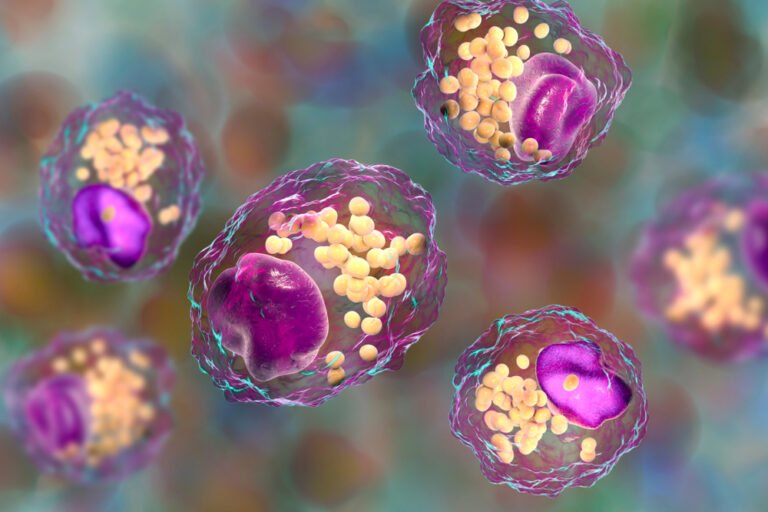At a glance
- SARS-CoV-2 infected coronary arteries and increased inflammation in atherosclerotic plaques.
- The findings suggest how coronavirus infection may increase the risk of heart attack and stroke.
COVID-19 is known to increase the risk of heart attack and stroke. In severe cases, severe inflammation throughout the body may contribute to this increased risk. However, it is unclear whether SARS-CoV-2, the virus that causes COVID-19, directly affects blood vessels.
To find out, an NIH-funded research team led by Dr. Chiara Giannarelli of the New York University School of Medicine looked at eight people who died from COVID-19 between May 2020 and May 2021. Coronary tissue samples were analyzed. Nature cardiovascular research September 28, 2023.
The research team found SARS-CoV-2 viral RNA in the coronary tissue of all patients. They found more viral RNA in the artery walls than in the surrounding fat tissue. Many of the infected cells were macrophages, a type of white blood cell that ingests pathogens. Samples with more macrophages contained more viral RNA.
Macrophages also help remove cholesterol from blood vessels. When macrophages become loaded with cholesterol, they become known as foam cells. A buildup of foam cells within the arteries forms plaques, a hallmark of atherosclerosis. The research team confirmed that SARS-CoV-2 can infect human macrophages and foam cells in Petri dishes. Foam cells were much more susceptible to infection than macrophages. This could explain why people with atherosclerosis are more vulnerable to COVID-19 infection.
In both cell types, infection depended on cell surface proteins called neuropilins. Turning off the neuropilin gene in these cells reduced infection. So did blocking the virus from binding to neuropilin.
The infection triggered several inflammatory pathways in macrophages and foam cells. The cells also released molecules known to cause heart attacks and strokes. Researchers observed an inflammatory response to SARS-CoV-2 infection in arterial plaques surgically removed from patients, similar to that seen in cultured cells.
The findings suggest that SARS-CoV-2 may increase the risk of heart attack and stroke by infecting arterial wall tissue, including associated macrophages. This causes inflammation of atherosclerotic plaques, which can lead to heart attacks and strokes.
“These results highlight a possible link between pre-existing heart disease and long-term coronavirus symptoms,” Giannarelli said. “It appears that the immune cells most involved in atherosclerosis may act as a reservoir for the virus, giving it an opportunity to persist in the body for long periods of time.”
“Since the early days of the pandemic, we have known that people infected with COVID-19 are at increased risk for cardiovascular disease and stroke up to a year after infection,” says the NIH National Heart, Lung, and Blood Division. says Dr. Michelle Olive. Institute. “We believe that one of the reasons for this has been solved.”
The authors plan to further investigate the potential link between arterial infections and Long COVID. They also aim to see if their results also apply to new SARS-CoV-2 variants.
—Written by Dr. Brian Doctorow
References: SARS-CoV-2 infection triggers a proatherogenic inflammatory response in human coronary vessels. Eberhardt N, Noval MG, Kaul R, Saja S, Amadori L, Das D, Silhoros B, Stewart O, Fernandez DM, Chamaylova R, Guillen AV, Giangura S, Schottsaert M, Gildea M, Newman JD, Fairies P. , Maldonado T., Lockman C., Lapkiewicz A., Stapleford KA., Narula N., Moore K.J., Giannarelli C. National Heart and Vascular Institute. 2023 9 28:2023.08.14.553245. doi: 10.1101/2023.08.14.553245. Preprint. PMID: 37645908.
Funding: NIH’s National Heart, Lung, and Blood Institute (NHLBI), National Center for the Advancement of Translational Sciences (NCATS), National Institute of Allergy and Infectious Diseases (NIAID), and National Institute of Diabetes and Digestive and Kidney Diseases (NIDDK). American Heart Association; Chan Zuckerberg Initiative; New York University.


